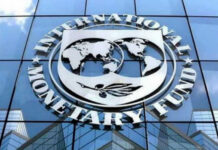12 banks face capital shortfall of Tk 23,612cr
The capital base of the country’s banks deteriorated as the capital shortfall of 12 banks increased by Tk 5,954.11 crore in the fourth quarter last year.
At the end of December last year, the capital shortfall in 12 banks increased to Tk 23,612.43 crore from Tk 17,658.32 crore three months ago.
Five state-owned banks, four private commercial banks, two specialised banks and one foreign commercial bank failed to maintain the required capital.
The banks are Sonali Bank, Argani Bank, Janata Bank, Rupali Bank, BASIC Bank, Bangladesh Commerce Bank, Community Bank Bangladesh, ICB Islamic Bank, Padma Bank, Bangladesh Krishi Bank, Rajshahi Krishi Unnayan Bank and National Bank of Pakistan.
The minimum capital to risk assets ratio (CRAR) is critical to ensuring a bank has enough cushion to absorb a reasonable amount of losses before it becomes insolvent and consequently loses depositors’ funds.
The Bangladesh Bank has been pressing the banks to maintain the CRAR at 12.5 per cent as part of the implementation of Basel III in the country’s banking sector.
Riding on the rescheduling with 2 per cent down payment, the defaulted loans in the country’s banking sector dropped to Tk 94,331 crore at the end of December, 2019 but the banks’ risk exposure increased.
Former adviser to a caretaker government AB Mirza Azizul Islam said, ‘The figure of defaulted loans has dropped by around Tk 22,000 crore due mainly to the same volume of loan rescheduling during the October-December period.’
It means that the volume of defaulted loans has reduced only on paper and that is why the capital shortfall has increased in banks, Mirza Aziz said.
Policy Research Institute executive director Ahsan H Mansur told New Age, ‘Although defaulted loans were rescheduled, the banks’ exposure increased due to fresh faulty credit issuance.’
As a result, the rescheduling policy failed to bring any positive result for the banks in terms of financial health improvement, Mansur said.
In reality, the situation of the country’s banking sector has deteriorated and it will continue weakening further, Mansur, also the chairman of BRAC Bank, said.
Bankers and economists identified the government’s faulty policies like the introduction of loan rescheduling with easy terms and its sympathetic approach towards large defaulters as the major reasons for soaring NPL.
Of the 12 banks, the capital shortfall in Bangladesh Krishi Bank was the highest, Tk 9,411.03 crore, against its risk weighted asset worth Tk 19,115.91 crore.
Another state-owned bank Sonali Bank suffered the second highest shortfall as its capital shortfall tripled to Tk 5,832.18 crore at the end of December from Tk 2,056.18 crore three months ago.
Sonali’s risk weighted asset increased to Tk 61,248.97 crore. Janata suffered Tk 2,489.67 crore in capital shortfall, Agrani Bank Tk 1,293.95 crore, ICB Islami Bank Tk 1,604.83 crore, BASIC Bank Tk 961.3 crore, Bangladesh Commerce Bank Tk 889.51 crore, RAKUB Tk 788.05 crore, Rupali Tk 200.77 crore, Padma Bank Tk 77.68 crore, NBP Tk 61.88 crore and Community Bank Bangladesh Tk 1.58 crore.
Although the 12 banks suffered capital shortfall, the rest 46 banks managed to maintain adequate capital against their risk weighted assets as the banking sector maintained Tk 13,831.17 crore in capital surplus.









